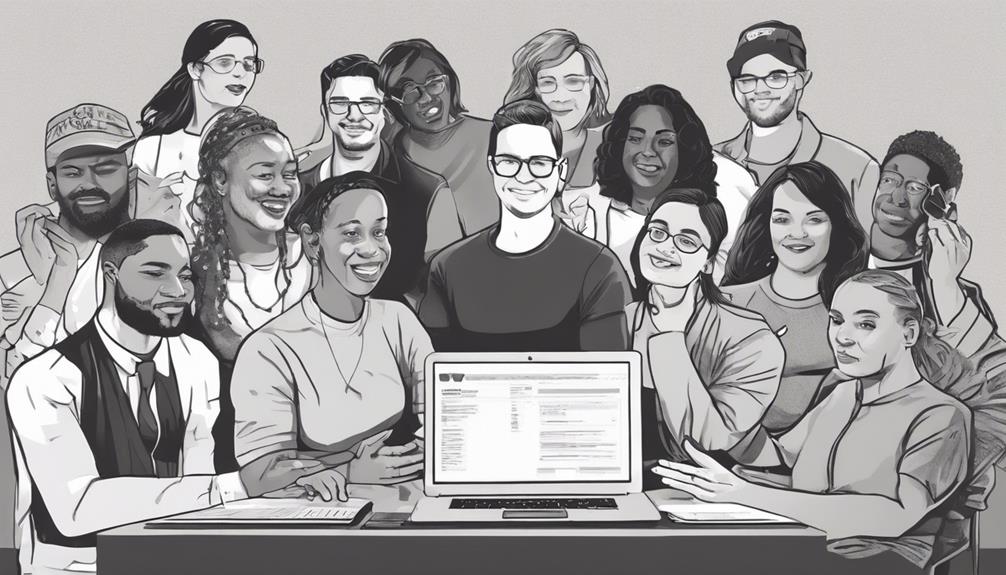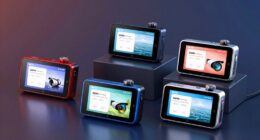Let's talk about the diverse range of transcription services tailored to meet the needs of the deaf community.
From real-time captioning to professional transcriptions, the options available are vast and evolving to enhance accessibility and communication.
Understanding the nuances and benefits of each service is vital for making informed decisions that can significantly impact the quality of interaction and information exchange for individuals with hearing impairments.
Key Takeaways
- CART offers verbatim transcripts for precise word-for-word capture.
- C-Print® and TypeWell focus on conveying the meaning behind spoken words.
- Different situations may require different services for the deaf community.
- Transcription services bridge communication gaps and enhance accessibility for diverse audiences.
Speech-to-Text Services Overview
Have you ever wondered how speech-to-text services cater to the diverse needs of the deaf community?
In the realm of real-time transcription, various services like CART offer verbatim transcripts, capturing every word spoken and generating about 40 pages of text per hour. On the other hand, options like C-Print® and TypeWell focus on conveying the meaning behind the words, producing around 15 pages of transcript per hour with contextual clarity.
Verbatim services excel at capturing nuances like false starts and filler words, while meaning-for-meaning providers prioritize accuracy and coherence by eliminating errors. When deciding between these types of transcription, it boils down to individual preferences and specific requirements.
Different situations may call for different approaches, and there isn't a one-size-fits-all solution. Understanding the distinctions between these services allows for tailored support that meets the diverse needs of the deaf community in real-time situations.
Factors in Choosing STTS

When considering the selection of Speech-to-Text Services (STTS), individuals must weigh various factors to ensure the most suitable option is chosen to meet their specific needs. Here are some key considerations to keep in mind:
- Transcript Output: Verbatim services like CART offer approximately 40 pages of transcript per hour, providing a detailed account of the spoken content. On the other hand, meaning-for-meaning services such as C-Print® and TypeWell produce around 15 pages per hour, focusing on conveying the essence of the communication.
- Personal Preferences: Different STTS cater to individual preferences and specific needs. Some individuals may prefer verbatim services for detailed information, while others may opt for clarity with meaning-for-meaning services. It's essential to choose a service that aligns with personal preferences to enhance the overall experience.
- Adaptability for Different Settings: Students, for example, may require different STTS based on the requirements of various classes. Ensuring that the chosen service is adaptable to different settings and contexts is crucial for seamless integration into daily activities.
Cost Considerations for STTS
Considering the financial aspects of Speech-to-Text Services (STTS) is essential when exploring options to cater to the needs of the deaf community. CART services are known to be more costly than C-Print® and TypeWell due to the higher education requirements and expensive equipment involved.
CART providers command higher pay rates, often influenced by court reporter rates, while C-Print® and TypeWell providers generally earn less per hour. The shorter training duration and lower equipment costs associated with C-Print® and TypeWell make them more budget-friendly alternatives to CART services.
The decision between verbatim and meaning-for-meaning services can also impact costs, as individual preferences and specific needs play a significant role in determining the most suitable option. It's important to note that there's no one-size-fits-all solution, as different situations may call for different services.
Understanding these cost considerations can help in making informed decisions when selecting the most appropriate STTS, especially when considering the expertise of CART providers.
STTS Vs. Notetakers

Exploring the differences between Speech-to-Text Services (STTS) and notetakers reveals distinct roles in providing support for the deaf community. When considering the best option for transcription services, it's essential to understand these variations:
- Real-Time Captioning Services (STTS):
- STTS such as CART deliver word-for-word transcripts, capturing detailed speech nuances.
- Providers like CART typically produce about 40 pages of verbatim transcript per hour, offering a high level of accuracy.
- STTS are crucial for individuals who require precise, real-time transcription to follow along effectively.
- Notetakers:
- Notetakers complement real-time captioning by offering lecture outlines and supplementary notes.
- They provide essential visual content details and summaries to enhance understanding.
- Notetakers play a vital role in capturing the overall context of the conversation or lecture.
Understanding the distinct advantages of both Speech-to-Text Services and notetakers can help individuals make informed decisions about the most suitable support for their needs.
Remote Speech-to-Text Options
Remote speech-to-text services offer a convenient solution for accessing real-time transcription remotely, catering to various needs where on-site services are not viable. These services connect writers to audio content through the internet or phone, enabling access to instant transcription. While remote speech-to-text services are suitable for many environments, challenges may arise in settings with poor technology access, impacting service quality. Providers may find it difficult to accurately capture visual content like slides or gestures, posing a hurdle in delivering precise transcriptions. To ensure effective remote speech-to-text services, a reliable internet connection, quality microphone, and proper conferencing software are essential. Here is a visual representation of the key points:
| Challenges | Solutions |
|---|---|
| Poor technology access | Ensure reliable internet connection |
| Capturing visual content | Use quality microphone |
| Ensuring service quality | Opt for proper conferencing software |
| Accessibility | Provide real-time transcription access |
Hearing Impaired Transcription Explained

Hearing impaired transcription services, such as CART, C-Print®, and TypeWell, play a crucial role in providing real-time text translations for the deaf community. These services offer invaluable support by ensuring effective communication access. Here's a closer look at how these services operate:
- CART Services: CART services are known for their high level of accuracy, producing approximately 40 pages of verbatim transcripts per hour. This real-time text translation captures spoken words with precision, enabling seamless communication for individuals with hearing impairments.
- C-Print® and TypeWell: Meaning-for-meaning services like C-Print® and TypeWell provide around 15 pages of context-based transcripts per hour. While they may not offer verbatim transcriptions, these services focus on delivering clear and concise text that enhances overall understanding during interactions.
- Tailored Solutions: Providers like TranscriptionStar offer deaf transcription services tailored to specific needs, whether for educational, religious, or organizational purposes. These customized solutions ensure that the deaf community has access to accurate and relevant transcripts for various settings and activities.
Benefits of Hearing Impaired Transcription
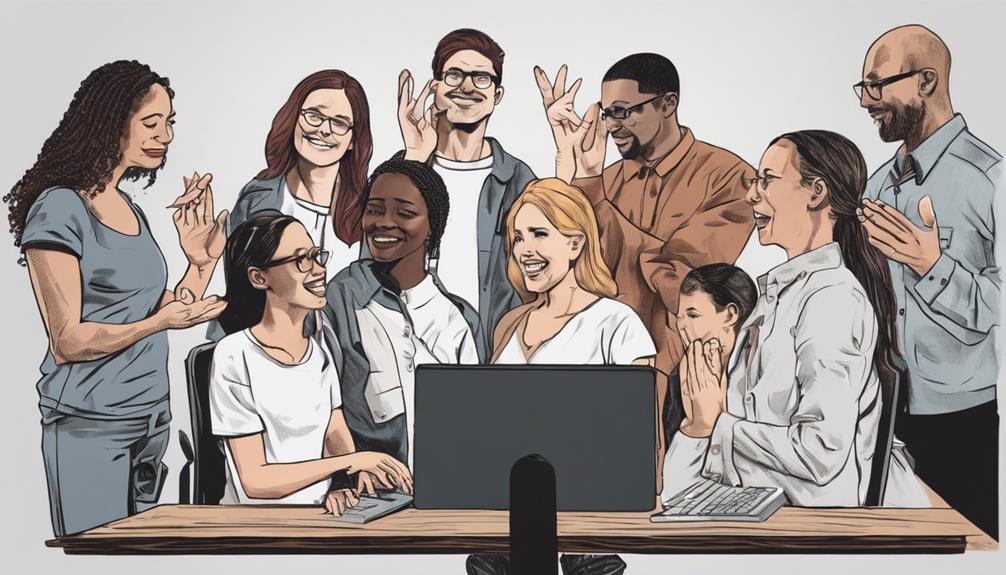
As we consider the impact of hearing impaired transcription services on the deaf community, it becomes evident that these services offer a vital lifeline by providing real-time access to information and enhancing communication for individuals with hearing impairments. Access Realtime Translation (CART) services play a crucial role in bridging the communication gap and empowering deaf individuals in various settings. Let's explore the benefits of hearing impaired transcription in the table below:
| Benefits of Hearing Impaired Transcription |
|---|
| Real-time access to information |
| Enhanced communication abilities |
| Reduced risk of misunderstandings |
| Empowerment through information control |
Through CART services, individuals gain immediate access to spoken content in written form, ensuring they do not miss out on important details. Additionally, these services facilitate smoother interactions, minimize communication barriers, and provide a sense of autonomy over information intake. Overall, hearing impaired transcription services significantly contribute to inclusivity and equal access to information for the deaf community.
Quick Inquiry Process
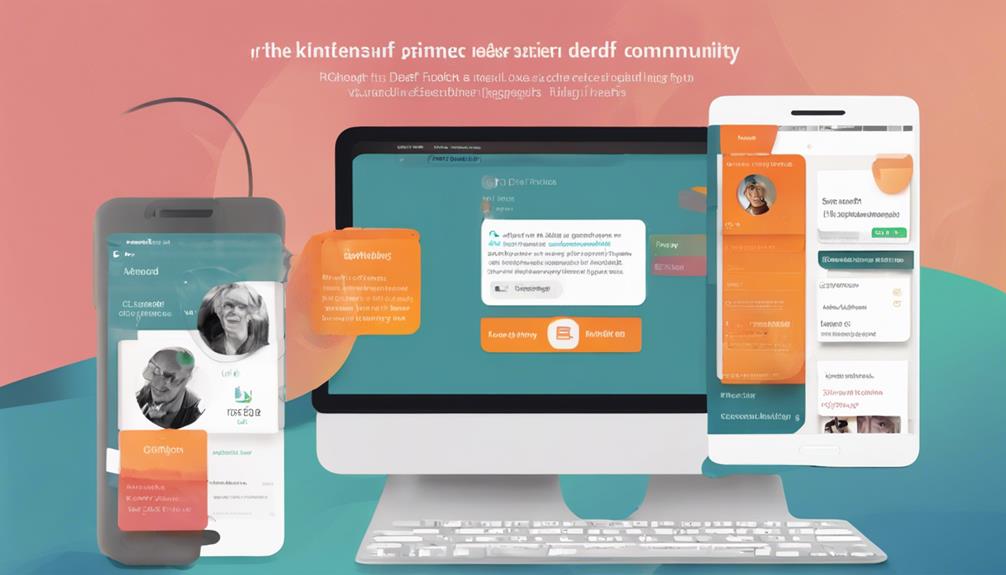
When it comes to quick inquiry processes for deaf transcription services, we understand the importance of accessibility.
At TranscriptionStar, we offer a seamless experience for calculating costs, uploading files, and selecting turnaround times.
Our focus is on providing pricing transparency, flexible options, and easy integration with various platforms, making the inquiry process straightforward and efficient for the deaf community.
Accessibility Features Offered
Our transcription services for the deaf community offer a streamlined and efficient quick inquiry process to ensure accessibility features are readily available. We understand the importance of providing quick and easy solutions for the deaf community, which is why we've integrated the following accessibility features:
- Quick Transcription Cost Calculation: Easily estimate the cost of your deaf transcription services upfront to plan accordingly.
- Simple Upload Process: Hassle-free transcription services for the deaf community with a user-friendly upload system.
- Flexible Turnaround Time Options: Tailored to meet the diverse needs of the deaf community, ensuring prompt delivery of transcripts.
We are committed to enhancing accessibility and convenience for the deaf community through our innovative transcription services.
Turnaround Time Options
Enhancing accessibility for the deaf community, our transcription services offer a range of flexible turnaround time options to cater to individual needs efficiently. We understand the importance of receiving transcriptions promptly without compromising accuracy. Our quick inquiry process ensures highly accurate transcriptions are delivered within the desired timeframe. Check out the table below for a summary of our turnaround time options:
| Turnaround Time | Description |
|---|---|
| Express | Fastest option for urgent transcription needs |
| Standard | Balanced delivery time for accuracy and speed |
| Extended | Allows for more intricate projects with precision |
With these choices, we guarantee that your transcripts will be delivered promptly and with the utmost accuracy, meeting your specific requirements and deadlines effectively.
Pricing and Packages
At TranscriptionStar, we understand the importance of transparent pricing and customizable packages to meet your unique needs when it comes to quick inquiry processes for deaf transcription services.
When considering our pricing and packages, here's what you can expect:
- Quick Cost Calculation: Our platform offers a seamless way to calculate costs for deaf transcription services swiftly.
- Customizable Packages: Tailored pricing packages are available to accommodate individual requirements and budgets effectively.
- Hassle-Free Upload Process: Clients can benefit from a simple upload process, ensuring a smooth and efficient experience for all your transcription needs.
Partnering with TranscriptionStar ensures not only affordability and flexibility but also a user-friendly approach to accessing high-quality deaf transcription services.
Five Reasons to Choose Us
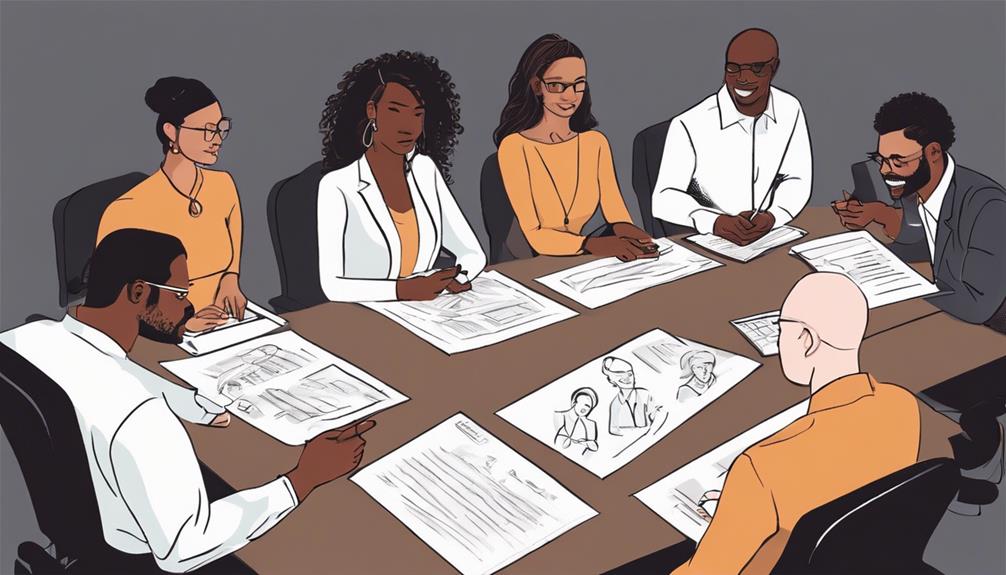
When considering transcription services for the deaf community, you'll find five compelling reasons to choose our tailored and accurate offerings.
Firstly, our Access Realtime Translation (CART) services provide precise transcriptions that cater to the specific needs of the hearing impaired.
Secondly, our commitment to affordability ensures that our clients can benefit from lower charges, potentially saving up to 40% compared to other providers.
Thirdly, our transcripts guarantee exact verbatim copies, capturing detailed nuances for enhanced clarity and accuracy.
Fourthly, whether you require transcriptions for recorded or streaming videos, our errorless transcripts meet diverse needs seamlessly.
Lastly, our flexible pricing options and available discounts allow for a customized approach that suits individual requirements. By choosing us, you aren't just selecting a service but a partner dedicated to delivering exceptional transcription solutions tailored to the unique needs of the deaf community.
Transcription Highlights

At our transcription service, we prioritize accuracy and reliability with a 98% quality guarantee and round-the-clock customer support.
Our flexible turnaround times cater to your specific needs, ensuring timely delivery of transcripts.
With affordable prices and an option for time coding, our services are accessible and tailored to provide precise reference points.
Transcription for Deaf
In catering to the needs of the deaf community, TranscriptionStar ensures round-the-clock customer service for seamless accessibility. Our focus on deaf transcription services encompasses a range of features tailored to meet specific requirements:
- 98% Accuracy Guarantee: We pride ourselves on delivering reliable and error-free transcripts, ensuring clarity and precision for the deaf community.
- Flexible Turnaround Times: Our service caters to the unique time constraints of the deaf, providing timely transcription solutions to meet individual needs.
- Affordable Pricing: Making high-quality transcription accessible, we offer competitive rates to ensure cost isn't a barrier to accessing our services.
At TranscriptionStar, we understand the importance of accurate, timely, and affordable transcription services for the deaf community.
Accessibility in Transcription
With a focus on enhancing accessibility, TranscriptionStar prioritizes delivering top-notch transcription services tailored to the needs of the deaf community. Our services include Access Realtime Translation (CART), ensuring real-time transcriptions for seamless communication. We guarantee 98% accuracy, providing clear and precise transcriptions that are vital for effective communication.
Our round-the-clock customer service availability ensures continuous support, meeting the diverse needs of the deaf community. Flexible turnaround times are designed to cater to specific requirements, offering timely access to essential information. Affordable pricing makes our transcription services accessible and cost-effective for all.
Time coding options further enhance the organization and utility of transcribed content, making it easier for the deaf community to navigate and utilize the transcriptions effectively.
Sign Language Transcription
Enhancing accessibility for the deaf community, sign language transcription services offer a vital bridge between sign language communication and written text formats, capturing the intricacies and nuances of signed expressions and gestures.
Sign language transcription plays a crucial role in ensuring that deaf individuals can fully engage with various forms of content. Here are three key aspects of sign language transcription:
- Detailed Translations: Transcribers meticulously convert sign language gestures, expressions, and movements into written words, preserving the original meaning and tone.
- Accessibility Enhancement: These services aim to make sign language content accessible through written text formats, providing a more inclusive experience for deaf individuals.
- Nuanced Communication: Sign language transcription captures the subtleties and details of sign language communication, ensuring that the richness of the message is conveyed effectively.
Hearing Impaired Transcription Pricing

Understanding the complexities of hearing impaired transcription pricing can empower individuals to make informed decisions regarding the transcription services they require.
When considering transcription services for the hearing impaired, it's important to note that CART services generally come at a higher cost compared to C-Print® and TypeWell. This price discrepancy is influenced by the educational requirements and expensive equipment needed for CART providers, as well as the higher pay rates they command due to factors like court reporter rates.
On the other hand, training for C-Print® and TypeWell is shorter, and the equipment costs are lower, resulting in lower hourly earnings for providers in this category.
Additionally, the cost of verbatim transcription services may vary based on the level of detail and customization required.
Fortunately, pricing options for hearing impaired transcription services can be tailored to meet specific needs and budget constraints, allowing individuals to access the services they require at a cost that aligns with their financial resources.
Deaf Transcription Services Overview
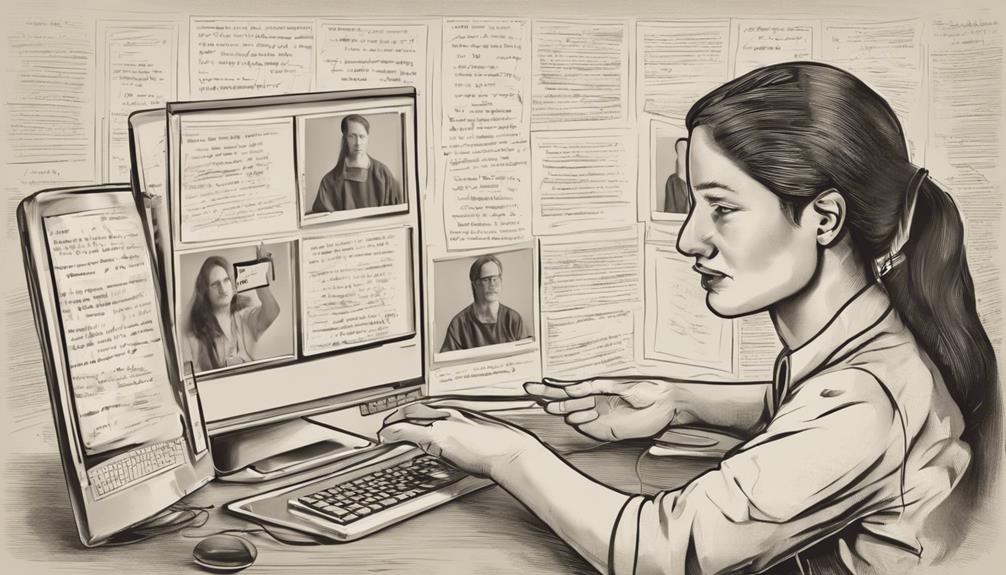
When it comes to Deaf transcription services, we understand the critical need for accessibility in transcription, sign language transcripts, and real-time captioning services to ensure effective communication.
These services play a vital role in bridging the communication gap and providing comprehensive support for the Deaf community.
Accessibility in Transcription
Deaf transcription services, such as C-Print® and TypeWell, offer meaningful text translations at a rate of approximately 15 pages per hour, catering to the specific needs of the deaf community.
When looking at accessibility in transcription, it's essential to consider the following:
- CART Services: Providing verbatim transcripts, generating about 40 pages of transcript per hour, capturing nuances like false starts and filler words.
- Specialized Services: TranscriptionStar offers trusted services for educational institutions, churches, and non-profits, ensuring accurate and accessible information.
- Remote Speech-to-Text: Enables real-time access to transcripts over the internet or phone, enhancing communication in various settings for the deaf community.
These innovations in transcription services are vital for fostering inclusivity and equal participation for the deaf community.
Sign Language Transcripts
In providing sign language transcripts, we ensure equal access to information for the deaf community, bridging communication gaps and facilitating understanding among diverse audiences. Sign language transcripts play a crucial role in capturing the essence of sign language communication, offering a written representation that's invaluable for individuals who rely on sign language.
These transcripts are meticulously crafted by deaf transcription services to provide accurate and detailed accounts of sign language interactions. By transforming visual gestural communication into written form, sign language transcripts empower deaf individuals to access educational, legal, and informational content more effectively.
Whether for educational purposes, legal documentation, or general information sharing, sign language transcripts serve as a vital tool in promoting inclusivity and enhancing communication within the deaf community.
Real-time Captioning Services
To ensure seamless communication accessibility for the deaf community, real-time captioning services play a pivotal role in providing instant word-for-word transcripts of spoken content. Real-time captioning services are essential for capturing spoken words accurately and transforming them into written text in a timely manner.
Some key aspects of these services include:
- CART systems can generate approximately 40 pages of transcript per hour, ensuring rapid accessibility for the deaf community.
- Meaning-for-meaning services like C-Print® and TypeWell offer context-based text translations, producing around 15 pages of transcript per hour to enhance understanding.
- Deaf transcription services aim to provide real-time communication access by converting spoken content into written text, fostering equal participation and engagement for individuals in the deaf community.
Deaf Transcription Process

Upon thorough requirement analysis to understand specific needs accurately, the Deaf transcription process proceeds with crucial planning after scope approval to ensure meeting necessary standards.
Utilizing the best tools and systems, transcription services for the Deaf community aim to deliver accurate and accessible content. A detailed review is conducted to identify errors and inconsistencies in the transcription before final drafts are securely delivered.
This meticulous process guarantees high-quality transcriptions that meet the unique requirements of the Deaf community.
Additional Services Offered
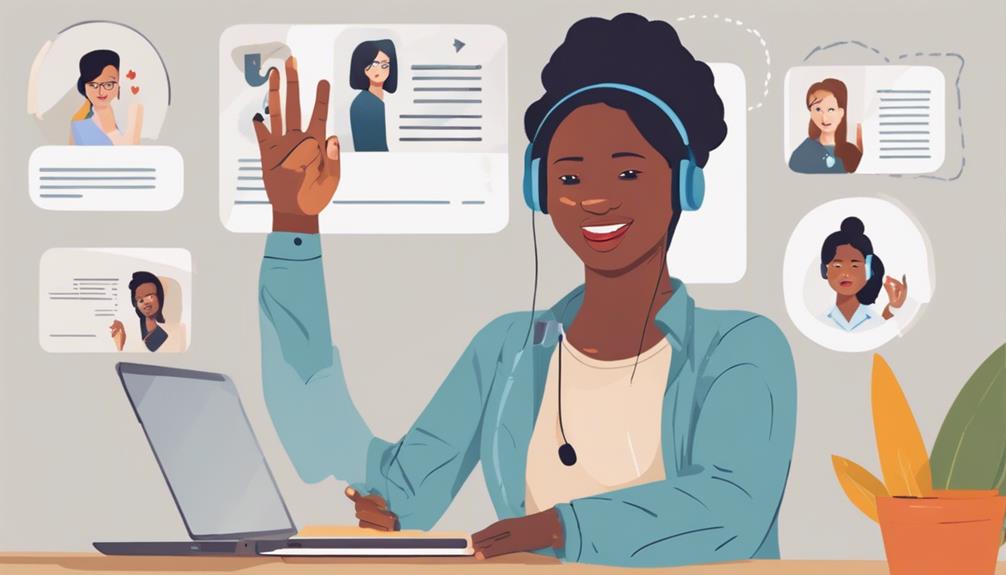
Building on the foundation of the Deaf transcription process, the suite of services offered expands to cater to a diverse range of needs within the Deaf community. These services include:
- Real-time Transcription: For live interactions, real-time transcription services provide immediate access to spoken content, ensuring deaf individuals can actively participate and engage in discussions without delays.
- Video Description Services: Enhancing accessibility for deaf individuals watching videos, this service provides detailed descriptions of visual content, enabling them to fully comprehend and enjoy multimedia presentations.
- Tailor-made Turnaround Time Packages: To meet specific needs and preferences, tailor-made turnaround time packages are available, ensuring timely delivery of accurate transcripts. Whether for educational purposes, religious events, or professional seminars, these packages guarantee that transcripts are delivered promptly and efficiently.
These additional services aim to bridge communication gaps, empower the Deaf community, and provide inclusive solutions for a variety of settings and situations.
Why Choose Flatworld Solutions

At Flatworld Solutions, we prioritize affordability and transparency in our offerings for deaf transcription services. Our commitment to providing fair cost estimates ensures that access to high-quality transcription services is attainable for all individuals in the deaf community. We understand the importance of data security when handling sensitive information, which is why we've stringent measures in place to protect files throughout the transcription process.
By leveraging the latest technology tools and software, we guarantee efficiency and accuracy in our transcription services. Our well-established infrastructure supports the delivery of reliable transcriptions that cater to the unique needs of the deaf community. Clients who choose Flatworld Solutions benefit from a streamlined experience, with a dedicated project manager serving as their single point of contact.
When you choose Flatworld Solutions, you aren't just accessing transcription services; you're gaining a partner dedicated to meeting your needs with professionalism and innovation.
Frequently Asked Questions
What Is the Transcription Service for the Deaf?
Transcription services for the deaf community are essential for accessibility. These services offer real-time text representations of spoken content, aiding in information access. Live captioning, verbatim transcription, and meaning-for-meaning translation cater to diverse needs. Providers utilize specialized tools for high-quality transcripts.
Availability of these services promotes inclusivity and equal participation. Deaf transcription services bridge communication gaps and empower individuals.
What Is the Best Transcription App for Deaf People?
Let's delve into the best transcription app for deaf individuals. It should boast high accuracy, real-time transcription, and customization options for accents and languages.
Incorporating AI-driven noise cancellation can enhance clarity. Continuous user feedback mechanisms further refine the app's effectiveness.
What Services Are Available for Deaf People?
Certainly!
Deaf individuals have various services available to enhance their communication access. These services include sign language interpreting, real-time transcription for instant communication, and specialized transcriptions for specific fields like neurology and psychiatry. Providers like TranscriptionStar ensure accurate and secure transcripts, catering to a wide range of needs within the deaf community.
These options promote inclusivity and empower deaf individuals to engage effectively in various settings.
What Transcription Services Are Available?
When exploring transcription services, we find a range of options tailored for various needs. Providers like TranscriptionStar offer specialized services for educational institutions, churches, and non-profits, ensuring accurate transcripts.
Additionally, real-time text translation services such as CART, C-Print®, and TypeWell provide crucial support for the deaf community. Video description services further enhance accessibility.
These offerings can be personalized to meet individual requirements, ensuring flawless transcripts with detailed nuances for effective communication.
Conclusion
In conclusion, when it comes to transcription services for the deaf community, options like speech-to-text services and specialized transcription providers like TranscriptionStar offer valuable support. These services not only enhance accessibility but also promote inclusivity and a sense of belonging.
Choosing the right service can make a world of difference in ensuring equal access to information and communication. So, don't hesitate to explore the options available and find the best fit for your needs.

